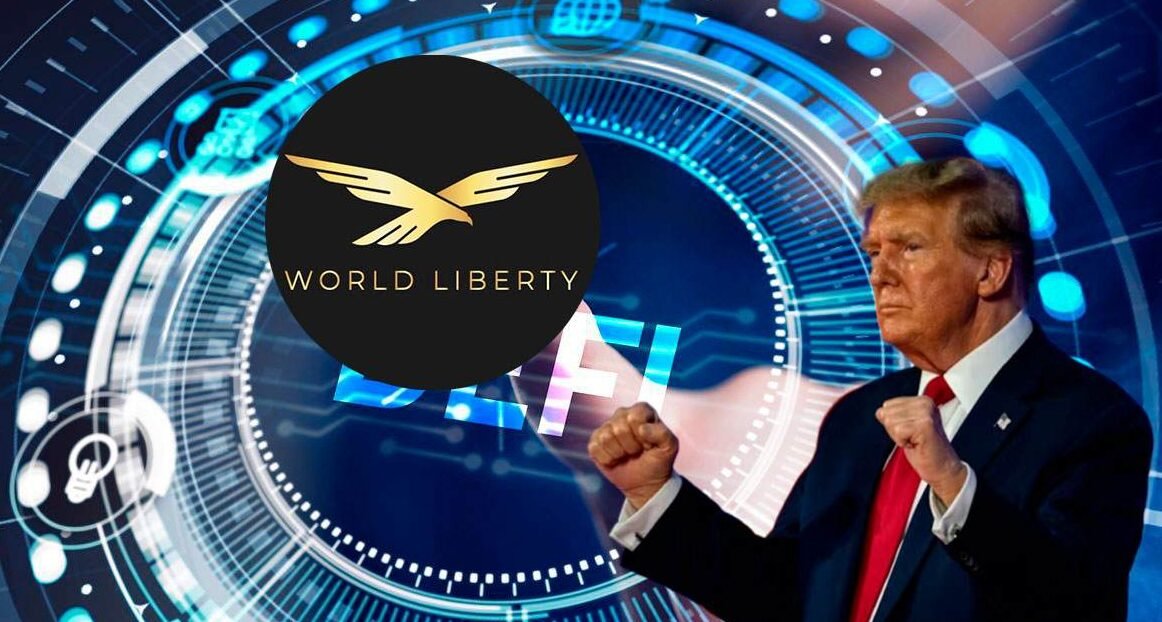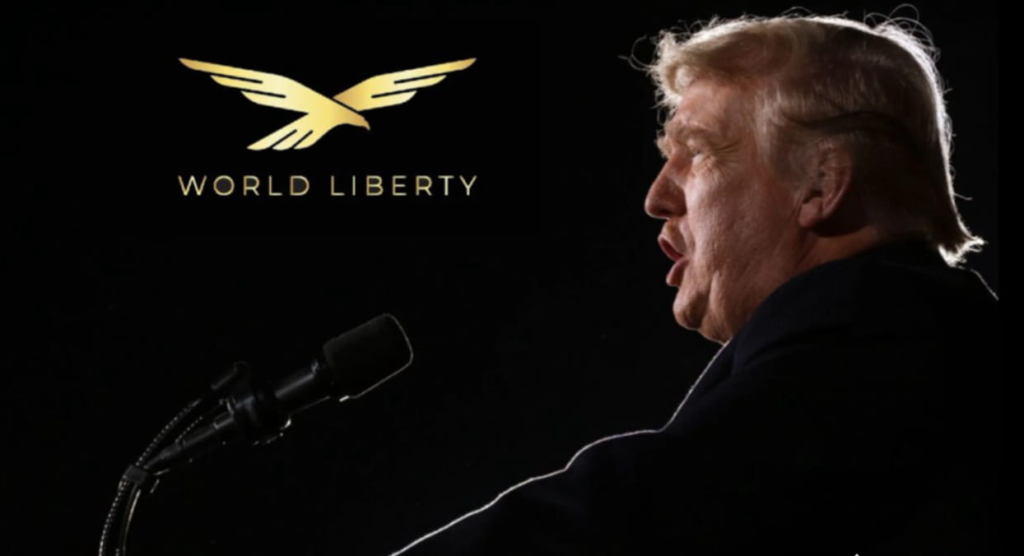Through his crypto project World Liberty Financial (WLF), Donald Trump’s foray into the realm of Web3 gaming has encountered significant obstacles, including a dramatic drop in investor interest and technological difficulties, thereby compromising its potential.
Originally intended to be a leading blockchain gaming project, the effort has fallen short of its high expectations, casting doubt on its future survival. A significant cut in financing for both Trump’s particular project and the blockchain gaming industry overall is one of the key causes of the declining excitement.
World Liberty Financial’s Token
The first presentation of World Liberty Financial marked its well-known entry into the Web3 and cryptocurrency marketplaces. Selling 20% of its WLFI tokens at a $1.5 billion valuation meant the company sought to raise $300 million. Expectations were high, given Trump’s brand strength and the growing interest in blockchain technologies. However, the introduction has not been entirely flawless.

Starting the token sale, technical problems dogged it. The WLFI token sale’s website crashed several times, despite claiming to have over 70 million distinct visitors. Consequently, only a small percentage of those who expressed interest were able to purchase the tokens. Approximately 8,500 individuals completed transactions and purchased nearly 750 million of the available tokens. The transaction raised just $14 million overall, significantly less than the set goal of $300 million. The project’s failure to meet financing targets significantly hinders its prospects.
Web3 Gaming Struggles
Although World Liberty Financial is an ambitious endeavor to join the Web3 gaming scene, it arrives at a time when the broader blockchain gaming sector is facing significant challenges. The excitement in the gaming industry for Web3 technologies—including distributed gaming assets and non-fungible tokens (NFTs)—has significantly waned.
Recent estimates indicate that financing for blockchain games decreased by more than half in the third quarter of 2024, to $128 million. This data shows a significant decrease in investment compared to the previous quarter, which saw a 56% decrease. The entire cryptocurrency industry has also suffered; venture capital funding dropped by 31% to $1.7 billion during the same period. These numbers capture broader market trends, whereby investors, particularly in the gaming sector, are growing increasingly wary of blockchain technologies. Many Web3 initiatives that fail to live up to expectations have contributed to the market’s growing cynicism.
This drop in interest and investment has made it even more difficult for Trump’s World Liberty Financial to get the required funds to keep the initiative running. Launching during a worldwide crisis in the crypto and blockchain sectors has likely reduced its prospects for success. Nowadays, potential investors are more reluctant to support initiatives with great returns but no obvious road to profitability or demonstrated track record.
Blockchain Controversy and Scrutiny
Apart from technical and financial problems, ethical and legal questions have also dogged Trump’s Web3 Gaming endeavour. The World Liberty Financial project’s collaboration with the Tron Foundation, which operates the Tron blockchain, is among the blockchain’s divisive features. The Tron platform has faced allegations of links to criminal groups like Hamas and Hezbollah, among other issues.

This association has raised concerns within the sector, especially given the U.S. government’s stance on blockchain-based platforms with questionable links. Critics contend that Trump’s decision to collaborate with a platform with such dubious connections, such as Tron, may lead to increased scrutiny by authorities. Such ties could lead to legal and regulatory obstacles that might impede the initiative’s capacity to get general acceptance on the market.
Justin Sun, the originator of Tron, has once again sparked controversy by offering advice to World Liberty Financial. Justin Sun is a divisive figure in the blockchain scene. Earlier accusations of fraud and manipulation have led to suspicions of odishonesty. These ties could potentially undermine the legitimacy of Trump’s endeavor and discourage potential investors from conducting regulatory inspections or engaging with high-risk individuals and companies.
World Liberty Struggles
Technical problems, changing market conditions, and ethical questions taken together have significantly eroded investor confidence in World Liberty Financial. Once considered a revolutionary endeavor by a former U.S. president, this project is currently struggling to keep momentum. The project’s future appears bleak, given the broader collapse in the cryptocurrency market and the inability to meet the original investment targets.
Notwithstanding the challenges, some members of the blockchain gaming community anticipate that Web3 gaming can eventually rebound with the right turn and fresh attention on producing value and user-centric goods. However, without Trump’s initiative, the current climate suggests a potential challenge for the project to establish itself without significant modifications to its strategy.
Final thoughts
Donald Trump’s attempt to enter the Web3 gaming market through World Liberty Financial faces significant challenges. Technical problems, declining investment in the blockchain gaming sector, and dubious links taken together have diminished the initial project excitement.
Although Web3 gaming still has considerable potential, it remains to be seen whether the endeavor will be able to overcome these major obstacles. The future of World Liberty Financial appears uncertain without a significant shift in strategy and more consistent support; the broader Web3 gaming market will also continue to struggle for widespread acceptance and success.

